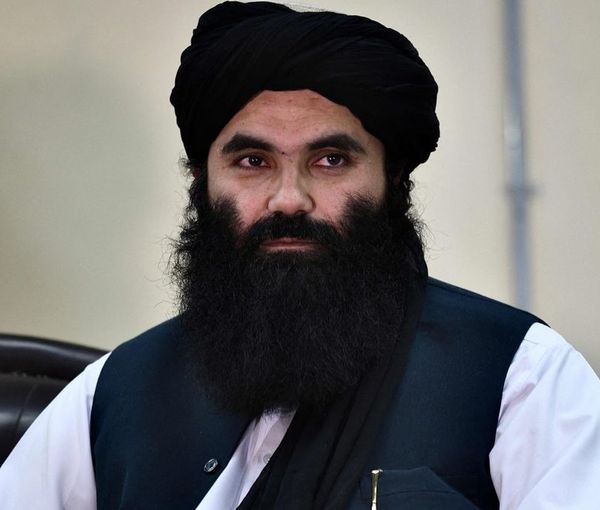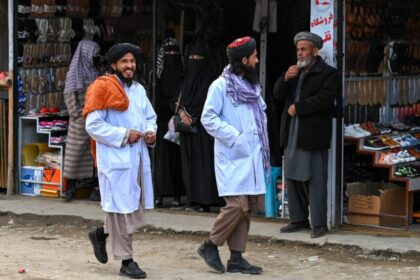RASC News Agency: According to a report by “The New York Times”, Sirajuddin Haqqani, the Taliban’s Minister of Interior, has surfaced as the only voice of discontent within the ranks of the Taliban leadership. Haqqani reportedly opposes some of the directives issued by the Taliban’s supreme leader, Mullah Haibatullah Akhundzada, and disagrees with the group’s broader leadership strategy. The “New York Times” indicates that Haqqani challenges several of Akhundzada’s rulings, while maintaining diplomatic ties with various international actors, including European countries, Gulf states, Russia, and China.
Since the Taliban reclaimed control of Afghanistan in 2021, Haqqani has risen to prominence within the group. However, he remains an enigmatic figure, having given just one interview to a Western journalist. According to the “New York Times”, its reporter had been pursuing a personal interview with Haqqani for years, finally securing a three-hour meeting earlier this year at a two-story compound in Kabul. In an effort to understand Haqqani’s political position and his influence within the Taliban, the “New York Times” reporter conducted interviews with over seventy experts, diplomats, Afghanistani officials, and Taliban members. These discussions revealed that, despite efforts by the Taliban to project an image of internal cohesion, serious divisions persist. Haqqani’s divergence from Akhundzada and other ultra-conservative leaders within the group has become increasingly pronounced.
Citing multiple sources, the “New York Times” reports that a majority of Taliban officials privately oppose Akhundzada’s rigid stance. Reform-minded figures within the group have been pushed aside, and dissenting voices have largely been silenced. However, Haqqani has emerged as the most visible dissenter, actively seeking external support to shift the balance of power within the Taliban in favor of reform. The report also highlights Haqqani’s growing diplomatic engagement, as he seeks to strengthen ties with several European countries, Gulf states, Russia, and China. Despite his efforts, the United States remains hesitant to engage with him due to his designation as a wanted terrorist.
Interestingly, the “New York Times” reveals that, around 2010, the Haqqani network exchanged secret correspondence with U.S. officials. Additionally, Ibrahim Omari, Haqqani’s uncle, met with American officials in Dubai in 2011. In a previously undisclosed meeting four years later, Omari held further discussions with U.S. representatives in a European city, relaying the Haqqani family’s message that they desired peace in Afghanistan. This report underscores the complex dynamics within the Taliban leadership and Haqqani’s growing influence as both a dissenter and a diplomat navigating Afghanistan’s challenging political landscape.






